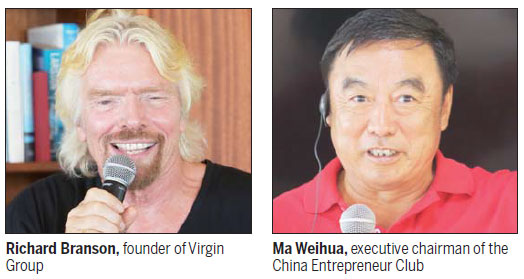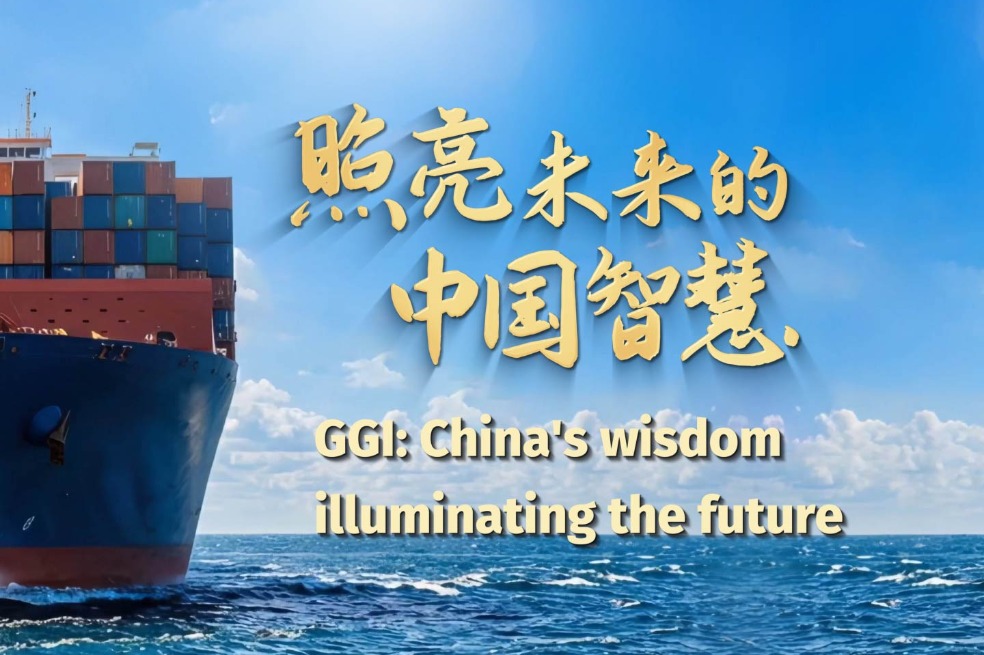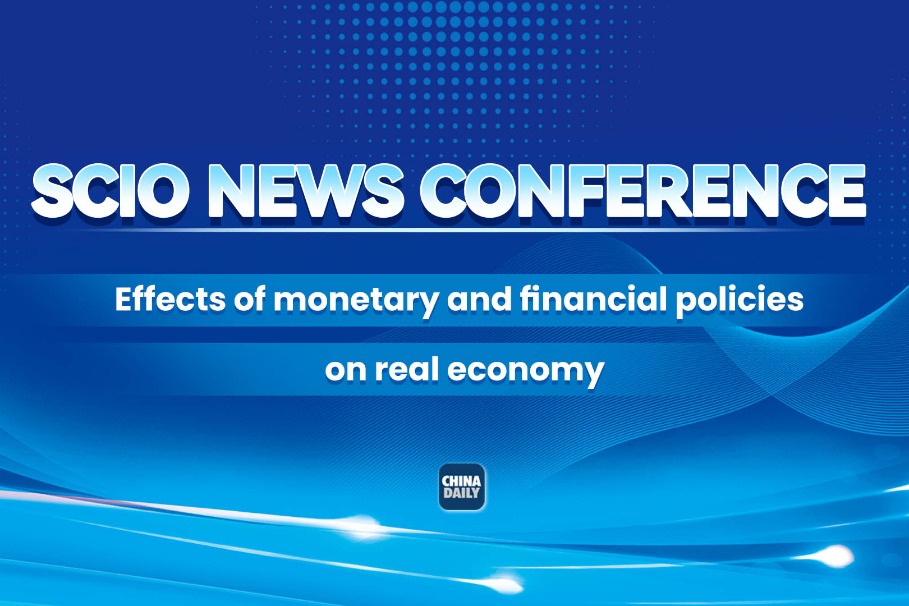Brainstorming with Branson

Chinese entrepreneurs spend five days with Virgin Group founder to talk about strengthening charitable and public initiatives
An influential group of business leaders from China say they are planning to set up a college in the country to cultivate talent able to better tackle future public initiatives and charitable activities.
Ma Weihua, the executive chairman of the China Entrepreneur Club, says that China now lacks enough talented people to work in the field, compared to many of other major nations.
| A delegation of Chinese entrepreneurs with Richard Branson (fourth from the right in second row) and their teams at Necker Island on Aug 4. Photos provided to China Daily |

He says that in the United States, for instance, there are already 292 universities which have public initiatives or charity majors. But in China, there is just one tertiary institution offering similar, Beijing Normal University, and a few minor programs.
Ma is just back from what he calls an "enlightening" trip, along with other members of the CEC, to the British Virgin Island where they were hosted by Sir Richard Branson, the founder of Virgin Group, the British travel, music, entertainment and financial services conglomerate.
Branson, one of the world's leading philanthropists and recently listed as the world's 302nd richest person by Forbes magazine, had met CEC members in London last year, and was interested enough in their work to invite them back to meet him for more formal discussions of their ideas.
He chose to host the event on his idyllic 30-acre Necker Island in the Caribbean, Aug 2-6. Ma, who is also a former president of China Merchants Bank, says the event provided him and the group with many valuable insights into how they could better use China's wealth and business strength, to do good.
Eight leading CEC members, from a range of companies, made the trip, including Wang Weibin, the chairman of Suntrans Holdings; Ai Xin, chairman of Suntone Group; and Xia Hua, chairwoman of Eve Group.
Ma says the five days of meetings focused on being responsible in business and using innovative business models to improve society.
Branson has played a visible role in areas such as alternative fuels and other green initiatives and peace efforts.

Ma says that he and his fellow-guests found lots of common ground with Branson, as they discussed the importance of running public initiatives and charities like businesses, to make them more sustainable.
Branson told his guests that he knew there were issues on which they could collaborate with Chinese entrepreneurs, and that he wanted China's entrepreneurs to make a greater effort to be involved with him and others from the West.
He adds that his group can help China as it deals with many of its most-pressing social issues, such as protecting the environment, public initiatives and charities.
He and senior members of his staff shared ideas about their own public initiatives and charities. Branson noted that campaigns in China to reduce consumption of shark fins, for instance, showed the potential for environmental and other such initiatives.
During their discussions, Branson said he hopes that business leaders across the world could united more, in using their influence on society and politicians to help solve problems in a more "quiet and peaceful way".
"In the West, finding solutions to such problems in many cases comes from public initiatives. China now needs to develop such initiatives," Ma says.
He adds that he found the details of some of Branson's public initiatives enlightening, and that he agreed with the British entrepreneur that great companies should be there not just to serve their customers but also to make the world a better place.
He also says that more non-government intervention is now needed to solve negative side-effects of China's rapid economic growth such as pollution, a scarcity of resources and a big income gap.
Branson highlighted two of his charitable activities.
He talked about Virgin Unite, the working name of The Virgin Foundation, the Virgin's independent charitable arm, which pools volunteering efforts from across the group and its subsidiaries to grow the efforts of smaller grassroots charitable organizations.
Partnered with more than a dozen charities worldwide the company also provides a resource through the Internet by serving as an online donation center for those wanting to contribute.
He also explained his role in setting up "The B Team", a non-profit initiative to encourage business to be a force for social, environmental and economic good.
Launched in October 2012 it is a group of global business leaders who share similar views about the need to transform business, delivering a what he calls a "Plan B", which champions concrete solutions to help make capitalism a driving force for social, environmental and economic benefit.
Ma adds that compared with 120,000 public foundations in the United States, China has a mere 3,000.
"Public initiatives barely receive any public attention here", he adds, and that public initiatives are poorly understood generally.
He explains that one reason for the strong public initiative sector in the US is the tax breaks they enjoy. In China, any non-profit organization wanting to be exempt from tax needs to go through a complex bureaucratic process, and only about 100 exemptions are granted each year, he adds.
After leaving China Merchants Bank, Ma says he started working for One Foundation, the first private foundation in China, launched by Chinese film star Jet Li to provide a professional and transparent public service platform.
"China still lacks a complete statistical system on public initiatives and charitable events, let alone other systems."
Despite the scarcity of resources in the field, Ma says he is encouraged that public initiatives and charities have begun growing.
"Each CEC member company has made contributions to charitable activities. Many companies have their own foundations and charitable programs, for example the One Foundation. Ten of its committee members are in the China Entrepreneur Club," he says.
"Chinese charitable activities embody the values that many entrepreneurs are keen on. More and more people are contributing to them. They are voluntarily protecting the environment; reducing discharges and pollution, and that kind of thing."
chenyingqun@chinadaily.com.cn
(China Daily European Weekly 08/15/2014 page20)
Today's Top News
- Xi's speech at Central Urban Work Conference to be published
- China completes over 8 million hectares of land greening in 2025
- FTZ helps Kashgar invigorate regional commerce
- Canada, China should eye a fresh start
- US playing with fire on thin Arctic ice
- Party conduct key to clean governance































